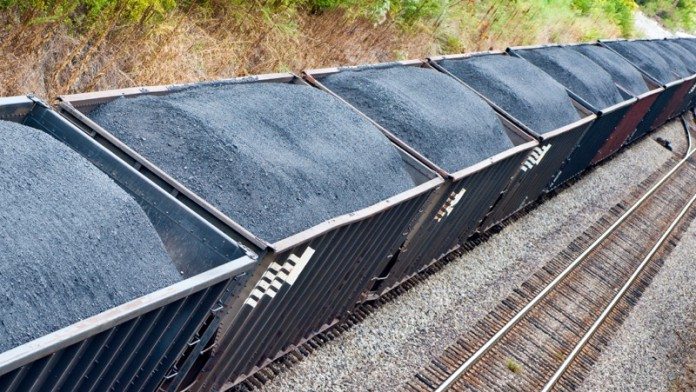
The boom times are over for South Africa’s coal exporters after a year during which thermal coal export prices spiked to more than $180/t fob (free on board) Richards Bay in November from around $80/t in January.
That’s the conclusion to be drawn from IHSMarkit executive director for coal, metals and mining James Stevenson’s assessment of the seaborne coal market. He told an investment webinar on December 15 that, “overall, we are bearish.”
Particularly annoying for the South African coal exporters is that, yet again, they have lost out on the chance to make the most of this year’s soaring prices because of Transnet Freight Rail’s inability to rail contracted volumes of coal to Richards Bay.
Exxaro CEO Mxolisi Mgojo said in August that South African coal exporters in total had lost some 9 million tons (mt) of exports in the first half of 2021 in what he called,”one of worst export rail performances for the industry.”
The Richards Bay Coal Terminal (RBCT) is due to report its export performance for 2021 on January 25 when the full extent of the industry’s foregone export earnings can be calculated.
Coal prices fob Richards Bay have now pulled back to around $130/t and Stevenson commented IHSMarkit expected prices to continue to drop and return to long-term average levels by the second half of 2022.
Reasons for this include; strong production from China, improving global supply in particular from Indonesia and the fall-off in temporary demand to rebuild coal stocks that had been run down.
Stevenson said the global seaborne coal trade was expected to reach about 973mt in 2021 which was about 50mt lower than the levels achieved in 2019.
Looking longer-term he said total seaborne coal imports were expected to fall to around 947mt by 2030 and more steeply after that to about 690mt by 2050 because of the growing focus on climate change and increased commitment to net-zero targets.
Only good news for coal exporters is that the decline is not expected to be consistent and could be interrupted by temporary spikes in demand.
Stevenson commented, “the trajectory for coal consumption is not expected to be linear. A recurrence of this year’s energy crisis, the intermittency of renewable power generation, poor grid connection, unexpected spikes in power demand and shortage of scaleable clean technologies will likely lead to frequent periods of coal demand as markets try to move away from coal burn.”
He added, “India is expected to be the only market to maintain thermal coal import growth through the outlook period. A slower commitment to decarbonisation by India will support coal demand into the longer term.”











